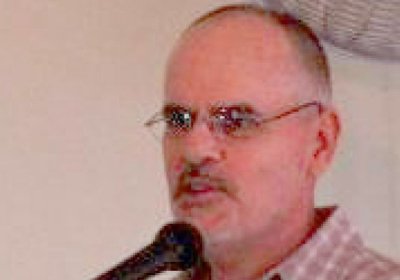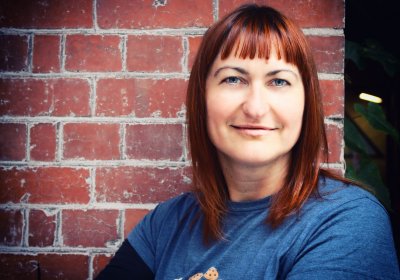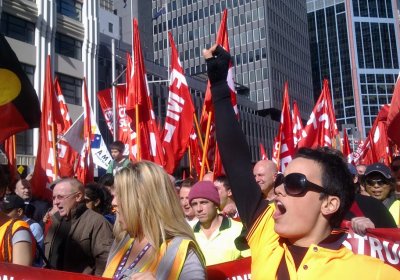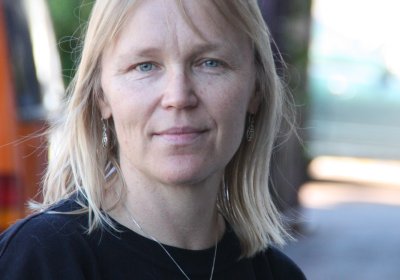At dawn on August 20, the offices of Kurdish groups in Sydney, Perth and Melbourne were raided by Australian Federal Police and state police. Police alleged the groups were linked to the Kurdish Workers Party (PKK), which struggles for self-determination for the oppressed Kurdish minority in Turkey.
The PKK was listed as a “terrorist organisation” by the Australian government in 2005. Kurdish leaders in Melbourne, along with the association’s lawyer Chris Ryan, questioned the timing of the raid, coming as it did the day before the federal election.
Australia
Rather than giving us the government we deserve, the August 21 federal election delivered an outcome the two old parties deserved.
Because both Labor and the Coalition focused on negative campaigning, sloganeering and scapegoating refugees and other minorities, a large number of voters decided to vote for alternatives with some vision.
A hung parliament with the Greens holding the balance of power in the Senate was only a partial reflection of this growing disenchantment with the two-party system.
By denying both the Australian Labor Party (ALP) and the the Liberal-National coalition an outright majority in primary votes and in House of Representatives seats, Australian electors voted “neither of the above” for the traditional parties of government.
This followed an election campaign in which the major parties conducted an ugly race to the right, most notoriously by scapegoating the few thousand desperate refugees who attempt to get to Australia on boats.
Unexpectedly, it seems to me, a great opportunity for social change has emerged. This might seem strange, with another neo-fascist on the verge of becoming Australian Prime Minister. However remember that real change comes from widespread social participation, over longer periods.
Victorian Socialist Alliance Federal election candidates strongly condemn the Australian Federal Police raids on the Kurdish Association of Victoria and community members.
Sick of the manipulative, increasingly policy-free barrage of major party negative advertising in the race to the August 21 Australian federal election?
For many union leaders afraid of a Coalition victory on August 21, campaigning against Tony Abbott in the federal election simply means campaigning for Julia Gillard.
With a conservative win on the cards, unions have escalated their pro-ALP campaigning. The Australian Manufacturing Workers Union (AMWU) — which has filled Labor’s coffers with more than $340,000 for the election campaign — has enlisted officials for ring-arounds in marginal seats.
Most Melbourne people wouldn’t know that there is a refugee detention centre, called the Melbourne Immigration Transit Accommodation, in Broadmeadows. It is hidden away behind the Maygar army barracks on Camp Road with no sign to indicate it is there.
The Socialist Alliance organised a protest outside the centre on August 11 to publicise its existence. When the local media was notified about the protest, none of the journalists approached had heard of it.
On August 12, candidates from the Greens, Socialist Alliance (SA) and newly formed First Nations Political Party (FNPP) spoke to a group of 50 people at La Tropicana cafe in Fremantle.
The forum was organised by SA to highlight environmental and social policies ignored by the major parties in the federal election campaign.
The event was chaired by Fremantle councillor and Western Australian SA co-convenor Sam Wainwright
Kate Davis, Greens candidate for Fremantle, said: “The Greens have a renewable energy target of 100% by 2030.
After a successful strike and picket line on August 8, Victoria University’s (VU) vice chancellor, Liz Harman, agreed to negotiate on pay and conditions.
Until then, senior management had demanded that promised pay rises this year be in return for abandoning regulation of workloads in the current enterprise bargaining round. The National Tertiary Education Union Branch (NTEU) has now suspended its bans on releasing results. Stood down union members have been reinstated.
“Lunchtime midweek in Campbelltown’s main street in the heart of western Sydney is a slow-moving affair”, the Australian’s Jennifer Hewett wrote on July 23.
“Cars drive in and out of the one-way street at a leisurely pace. Business is not exactly booming in most of the small, tired-looking shops. There’s plenty of room on the footpath for pedestrians.”
- Previous page
- Page 862
- Next page









